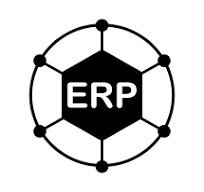Benefits of Cloud ERP Software
Cloud ERP solutions allow businesses to expand without incurring costly hardware maintenance expenses, freeing your IT team to focus on more valuable growth-driving projects

Cloud ERP solutions allow businesses to expand without incurring costly hardware maintenance expenses, freeing your IT team to focus on more valuable growth-driving projects.
Cloud-based systems also come equipped with backup and recovery protocols to reduce the risk of data loss, while upgrades are easier to incorporate since upgrades come as part of one recurring subscription fee.

Cost-effectiveness
Assure that all pricing from vendors is transparent, and avoid contracts with vague terms that could result in costly surprises. Also avoid features that you don't require now but might come in handy later - for instance an ERP solution should support multi-currency and multilingual capabilities should your business plan to expand into international markets.
When selecting a cloud ERP system, take time to consider its total cost of ownership (TCO). This includes all expenses associated with its lifecycle such as hardware and software maintenance costs, user license fees and possible integration of new modules into its platform. Furthermore, remember to account for expenses that might arise during implementation such as data migration and training costs.
Cloud ERP solutions provide significant cost savings compared to on-premise systems. Traditional vendors charge upfront licensing fees that they amortize over an extended period. SaaS models, in contrast, feature subscription fees that reduce upfront capital expenses.
Cloud-based ERP can also reduce capital investments and maintenance expenses for physical servers and their cooling needs, leading to significant energy cost savings. Furthermore, staff can work remotely ensuring continuity in processes while eliminating communication issues due to multiple versions of data.
Scalability
When searching for an ERP system to expand with your business, selecting one with an effective scalability model is of key importance. This feature enables quick up or down scaling without compromising functionality, helping avoid expensive upgrades and maintenance fees down the line. Furthermore, an easily scaled ERP should provide user-friendly features, including user-friendly navigation and visual design to encourage adoption among employees and maximize the use of your software by your team.
Many businesses begin with simple tools like QuickBooks or Excel spreadsheets to manage their business processes, but over time these tools become costlier and ineffective as the company expands. Furthermore, these solutions often create data silos which prevent effective decision-making. An ERP system which consolidates all your information into one integrated platform may help reduce these challenges while increasing scalability.
An affordable cloud ERP solution offers flexible cost structures and can be tailored to fit the unique business requirements of each organization. A multi-tenant SaaS allows multiple organizations to share one server while keeping their own data private and secure - this may be more cost-effective than on-premise software which requires substantial upfront capital expenditure for hardware licensing costs and licensing agreements; additionally, cloud systems frequently offer transparent fee structures without long-term commitments; finally a comprehensive security model protects all applications, data, and reports.
Security
Security in ERP systems is a complex issue involving both technological and human factors. Cyberattacks and data mishandling are two primary concerns for businesses; therefore they must take all measures possible to safeguard their systems against this potential damage. Businesses should install robust encryption and access controls to protect sensitive information against theft by hackers; limit who can access data; train personnel on how to recognize common security risks; as well as limit how often employees access data for personal reasons.
Most cloud-based ERP solutions are multitenant SaaS solutions, meaning multiple organizations share one software and infrastructure. While this can reduce costs and speed up upgrades, it also leaves it open to attacks like cross-site scripting which injects malicious code directly onto web pages that users view, potentially stealing session cookies and altering system functions; denial-of-service attacks clog servers with redundant requests while blocking access to actual user requests.
Cloud-based ERP vendors are well equipped to quickly identify and address security threats using reliable methods like continuous monitoring, frequent testing and automated backups. Furthermore, they must comply with established regulations and standards, such as encryption of data in transit and at rest to protect against unauthorized access and physical security measures in servers and data centers to guard against physical threats.
Flexibility
One of the greatest advantages of Cloud ERP Software is its flexibility. Employees can access it from any location, eliminating barriers that otherwise restrict productivity and collaboration. It also enables business units to take on new projects without incurring upgrades costs in terms of hardware or software.
Traditional on-premise ERP systems require businesses to own and hire IT staff for management, while costly servers may present security risks. Cloud ERP solutions, however, are managed by service providers who take care of upgrades, maintenance and backups while offering greater accessibility through web browser access from any device.
Advanced cloud ERP systems can accommodate new technologies like AI more rapidly than on-premises ERPs can upgrade their interface, making cloud ERPs more flexible than on-premises ones and making user experience updates simpler - this flexibility is particularly essential for modern companies competing in rapidly shifting markets that need an agile platform for growth
What's Your Reaction?























